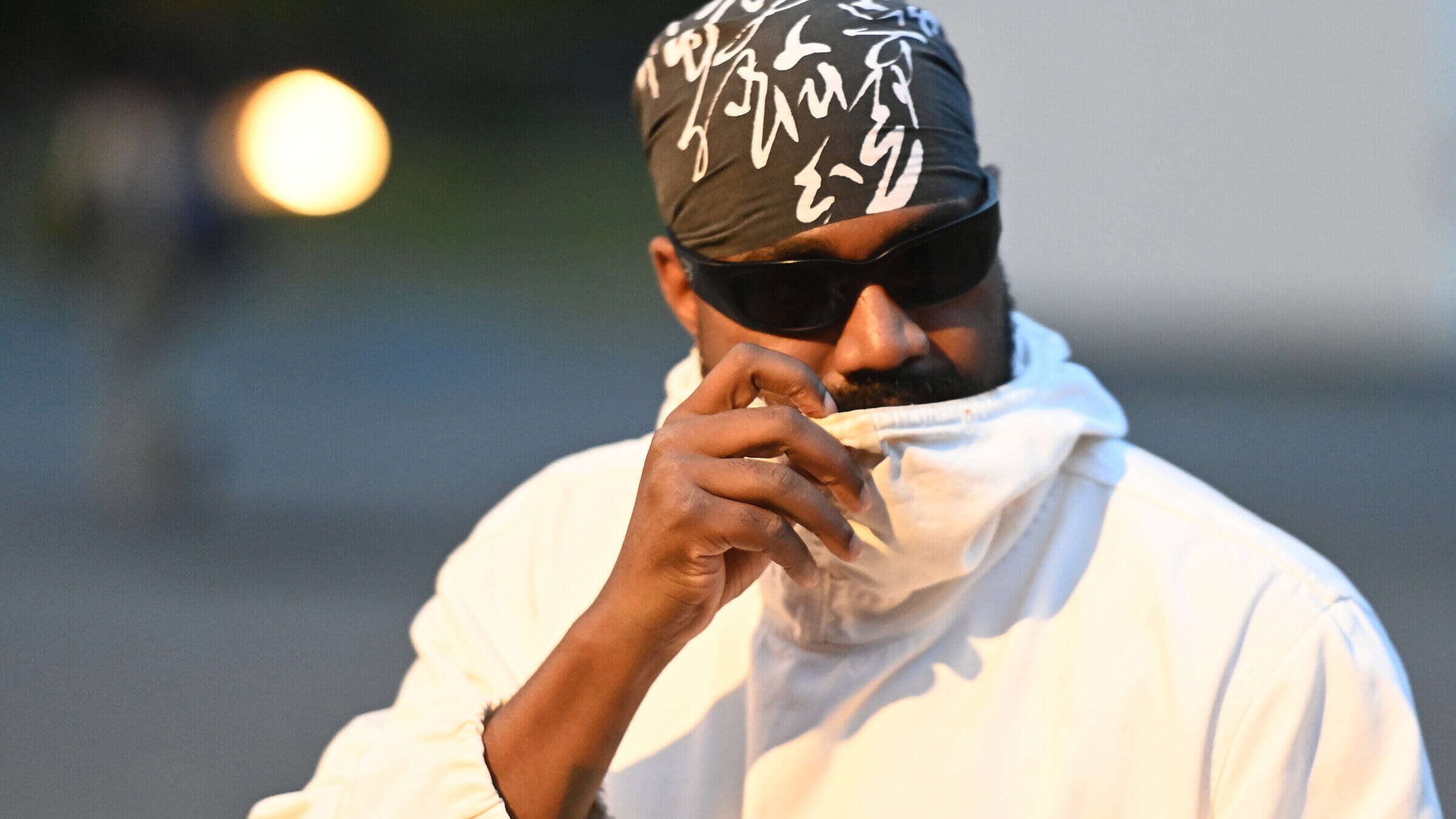Ye’s antisemitism is old news, but it’s time to pay attention again
The artist’s newest song, ‘Heil Hitler,’ is doing numbers online, which is noteworthy

Ye at a fashion show. Photo by Getty Images
When the hip-hop artist formerly known as Kanye West went on his first antisemitic tirade, some colleagues opined that we should ignore it. Why give more gas to that fire?
It was a different time; the platform the musician was posting his rants on was still called Twitter, and he had only just begun to use the name Ye. It seemed possible, at that moment, that the story would die out, that it was a blip — a publicity stunt that would fail, perhaps, or a moment of psychosis that would be contained or cured.
That idea now seems absurd. In addition to the antisemitic social media rants, we’ve now gotten songs and music videos praising Hitler, a Super Bowl ad selling a swastika T-shirt and several appearances in Ku Klux Klan robes. Nothing has died out; it’s all gotten a bigger stage.
And yet, in another way, it did die out. Ye’s antisemitism became old news. Another day, another antisemitic conspiratorial rant on X. As the sun rises, so Ye tweets. Whatever.
Unfortunately, however — and at the risk of adding gas to the fire — I think it’s time to pay attention again.
It’s not that Ye’s antisemitism has become newsworthy per se. It’s the fact that it hasn’t — yet it’s also continued on larger and larger platforms. In fact, ignoring him while letting him continue has just allowed society to acclimate to his views. His constant praise of Nazism has normalized saying “Heil Hitler” publicly, without condemnation.
Now that his rants aren’t so startling anymore — in fact, for many, they’ve instead become almost funny, a sort of “lol, did you see Ye is back on his BS” — some people have actually started to consider what he’s saying seriously.
Discussing Ye’s newest song, “Heil Hitler,” on The Joe Rogan Experience, the podcast’s host noted that it had received millions of downloads on X — despite the fact that most major music streaming platforms, like SoundCloud and Spotify, had immediately removed the song.
The song’s popularity, Rogan argued, “kind of supports what he says, which is that there’s this concerted effort if you talk about Jewish people, that they’re going to remove you from everything, remove you from banking. Which is what he’s saying, they run everything.”
Rogan’s podcast is well-known for his “just asking questions” style, which allows the podcaster to keep plausible deniability for platforming conspiratorial or hateful ideas. But he’s not the only major figure beginning to take the rapper’s antisemitic conspiracy theories seriously. The actor Russell Brand called Ye “uncancellable,” saying that the artist’s continued popularity is a “problem for their agenda,” referring to an unnamed shadowy group that is, he implied, in control of world affairs.
The more general masses have found Ye’s newest round of antisemitism in the form of a song to be hilarious and meme-worthy. Plenty of people have also called it an edgy work of genius. Others think it’s both: One X user said the song’s genius lay in its comedy, thanks to Ye’s decision to “become a Nazi just to mock the system.”
Regardless, people are consuming the song and watching the music video and enjoying it, whether they’re poking fun or agreeing with every word. The fact that Ye has found a larger and larger platform for his antisemitism is, of course, in part a function of his wealth and reputation; he can afford to more or less do whatever he wants, and someone will help him make it or dance in his video because he’s famous. But part of the reason that he has been able to air his conspiracy theories in bigger and bigger ways, without major backlash, is that they’re finding purchase. People are watching his videos. They’re downloading his songs. They’re engaging positively with his social media rants.
That brings in money. And money is what really drives normalization. There’s no downside for Ye’s rants — they’re old news, hardly worth freaking out about, no company or brand is cutting ties with him over antisemitism that hasn’t already. But there is an upside: profit. And when antisemitism becomes profitable, we’re in trouble.
















